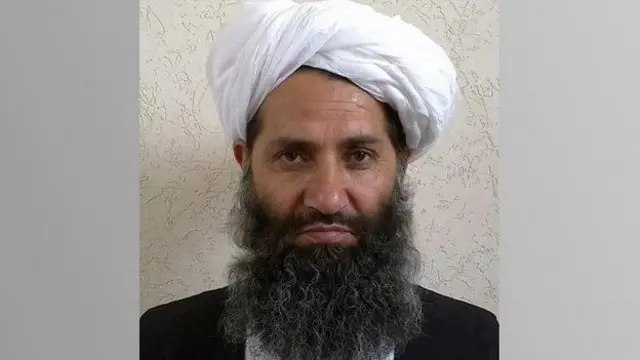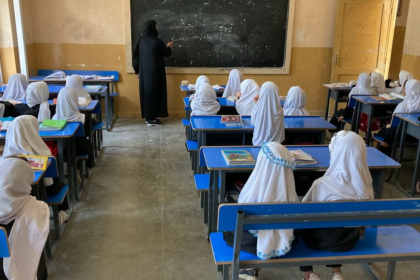RASC News Agency: Reliable sources have confirmed that Taliban Supreme Leader Hibatullah Akhundzada has issued an unprecedented directive summoning all professors of Islamic Law (Sharia) and Islamic Culture from both public and private universities across Afghanistan to attend a high-level assembly in Kandahar. The gathering, set for Monday of the coming week, will take place on the campus of Kandahar University within the power center of the regime’s ideological leadership.
An official memorandum, dated Wednesday, April 16, and obtained by the media, declares the presence of university chancellors, deans of Sharia faculties, and Taliban-appointed directors of “Da’wah and Guidance” departments to be “mandatory and imperative.” The order bears the signature of Nada Mohammad Nadim, the Taliban’s Minister of Higher Education. Yet, conspicuously absent from the document is any disclosure of the meeting’s agenda fueling speculation about the nature and intent of the assembly.
Sources close to the Taliban’s educational bureaucracy suggest that this mass summoning is likely part of a broader strategy to formalize a unified religious and ideological doctrine for Afghanistan’s academic institutions one overseen directly by Akhundzada himself. If so, it would represent a decisive step toward transforming universities into instruments of ideological enforcement, rather than centers of independent thought and academic inquiry. The move is the latest in a systematic campaign by the Taliban to militarize academia by embedding loyalist clerics into the heart of the education system. Since reclaiming power in August 2021, the regime has aggressively replaced qualified educators with uncredentialed mullahs many of whom lack formal academic training and serve as ideological enforcers rather than scholars.
This calculated repopulation of university faculties with Taliban loyalists has drawn widespread condemnation from students, faculty members, and education experts, who view it as an assault on intellectual freedom and institutional integrity. What was once a fragile but aspiring academic infrastructure is rapidly being hollowed out and repurposed as a tool for religious indoctrination. Afghanistan’s education sector has been in steady decline since the Taliban’s return. Draconian restrictions, sweeping ideological interventions, and the elimination of critical subjects have gutted the curriculum and suppressed any vestige of academic independence. The systematic exclusion of women and girls from secondary and higher education has further accelerated the collapse.
Enrollment numbers have plummeted, particularly among female students, while morale among educators has withered under the weight of surveillance, coercion, and fear. The Taliban’s vision for education rigid, narrow, and devoid of pluralism is increasingly viewed as a direct threat to the country’s intellectual and societal future. By convening this assembly in Kandahar, Akhundzada signals a decisive effort to centralize educational authority and enforce doctrinal uniformity. Kandahar long regarded as the ideological nucleus of the Taliban movement is fast becoming the epicenter of the regime’s campaign to dismantle academic pluralism and impose an unyielding theocratic order.
Observers note that the choice of location is symbolic as much as strategic. The message is clear: Afghanistan’s universities are to be remade in the image of the regime’s most conservative and authoritarian vision one that tolerates no dissent, no diversity of thought, and no deviation from prescribed religious orthodoxy. This deepening ideological grip over Afghanistan’s education system is not simply a matter of policy it is a cultural and generational reckoning. By subordinating academic institutions to the dictates of an extremist hierarchy, the Taliban are systematically destroying one of the last remaining pathways for youth empowerment and national development.
Scholars and policy analysts warn that this trajectory could result in irreversible intellectual decline, driving Afghanistan into deeper isolation and eroding its capacity to engage with the modern world. The long-term consequences may be catastrophic not only for education but for governance, innovation, and societal cohesion. In summoning the nation’s Islamic studies professors to Kandahar, Akhundzada is not merely holding a conference he is orchestrating an ideological realignment that threatens to extinguish the very concept of education as a space for inquiry, debate, and growth. This move represents the formalization of a regime-wide project to replace education with indoctrination, scholars with clerics, and knowledge with dogma.
If left unchallenged, this initiative will not only silence the voices of Afghanistan’s academic community it will mute the aspirations of an entire generation.






